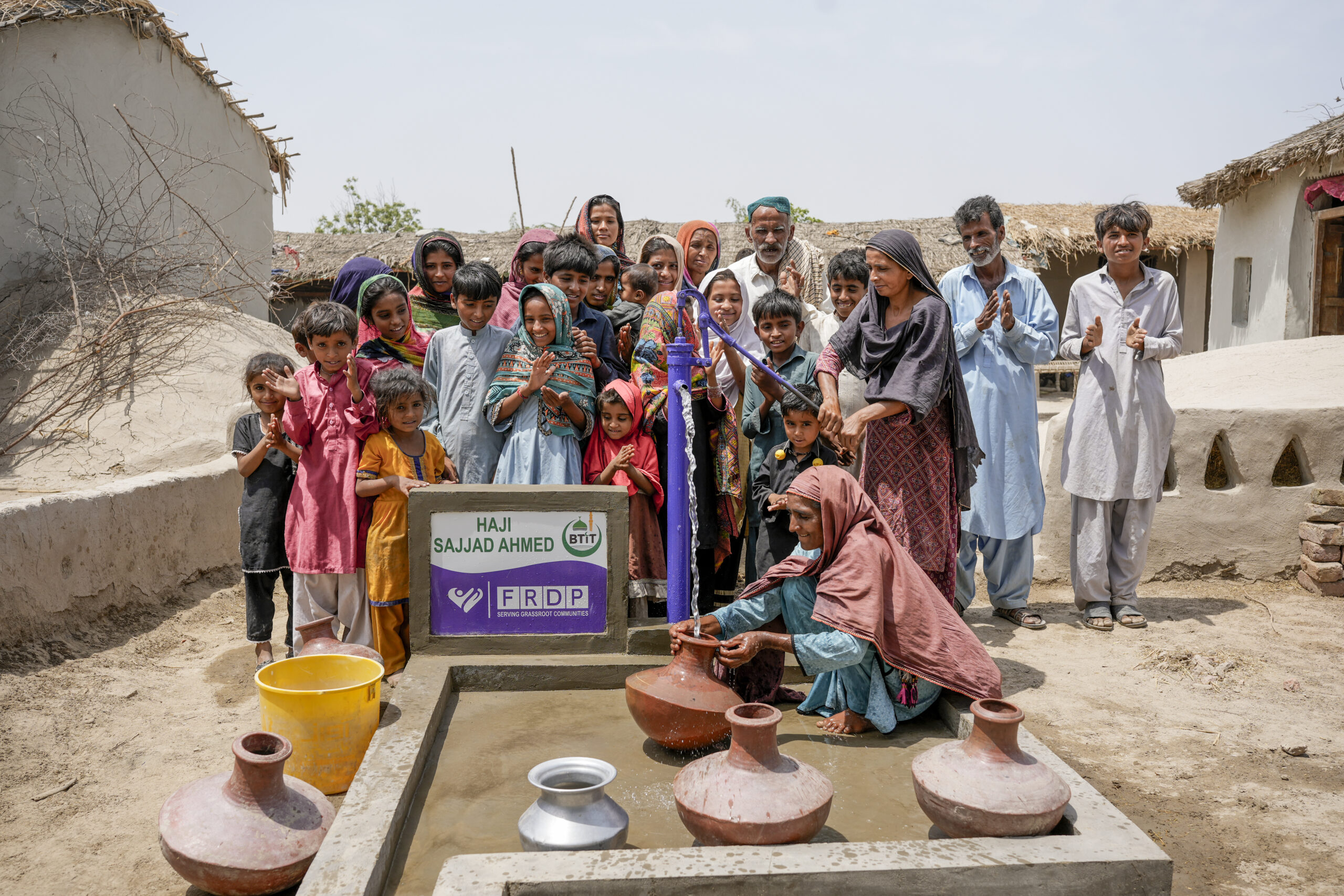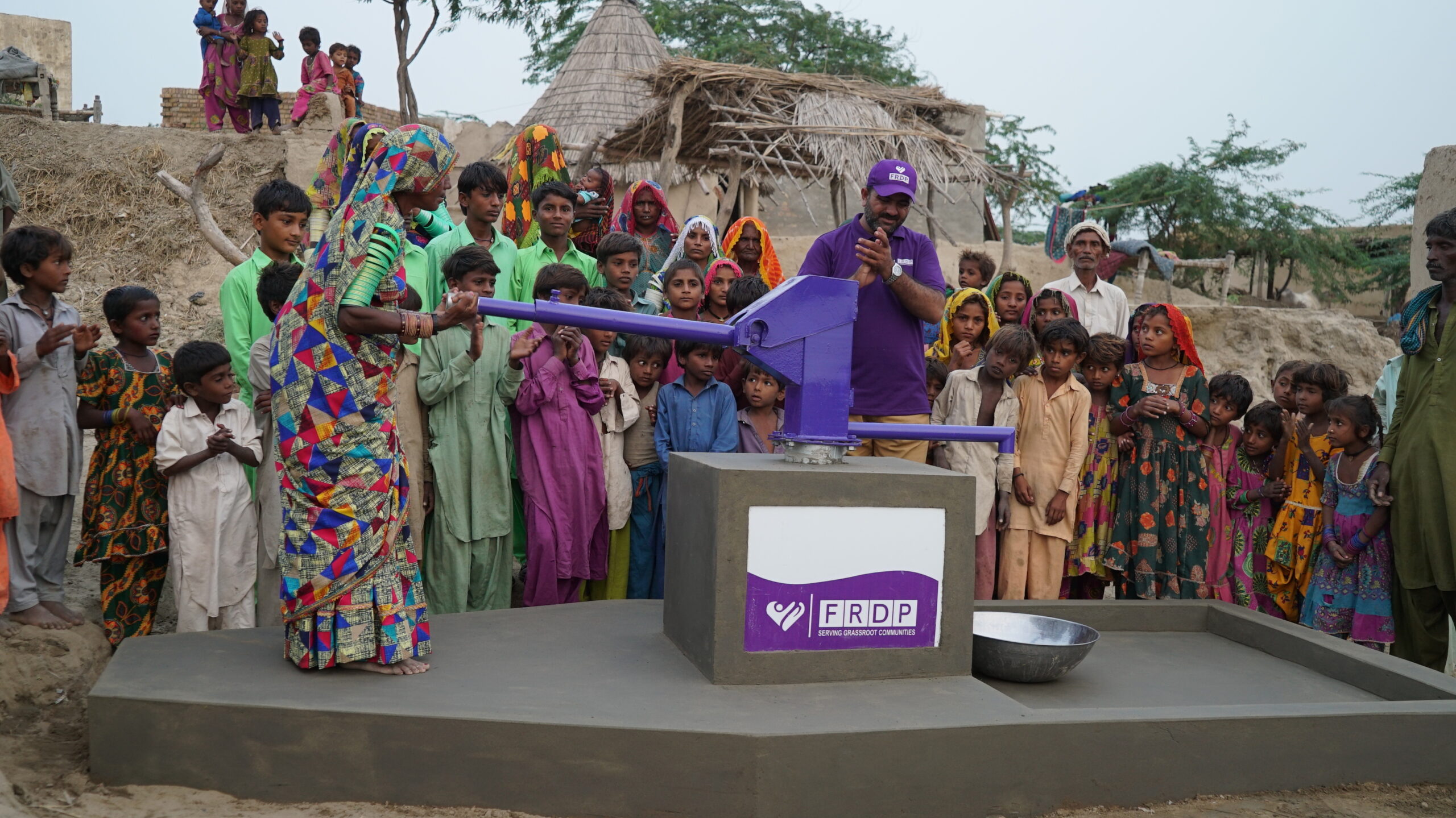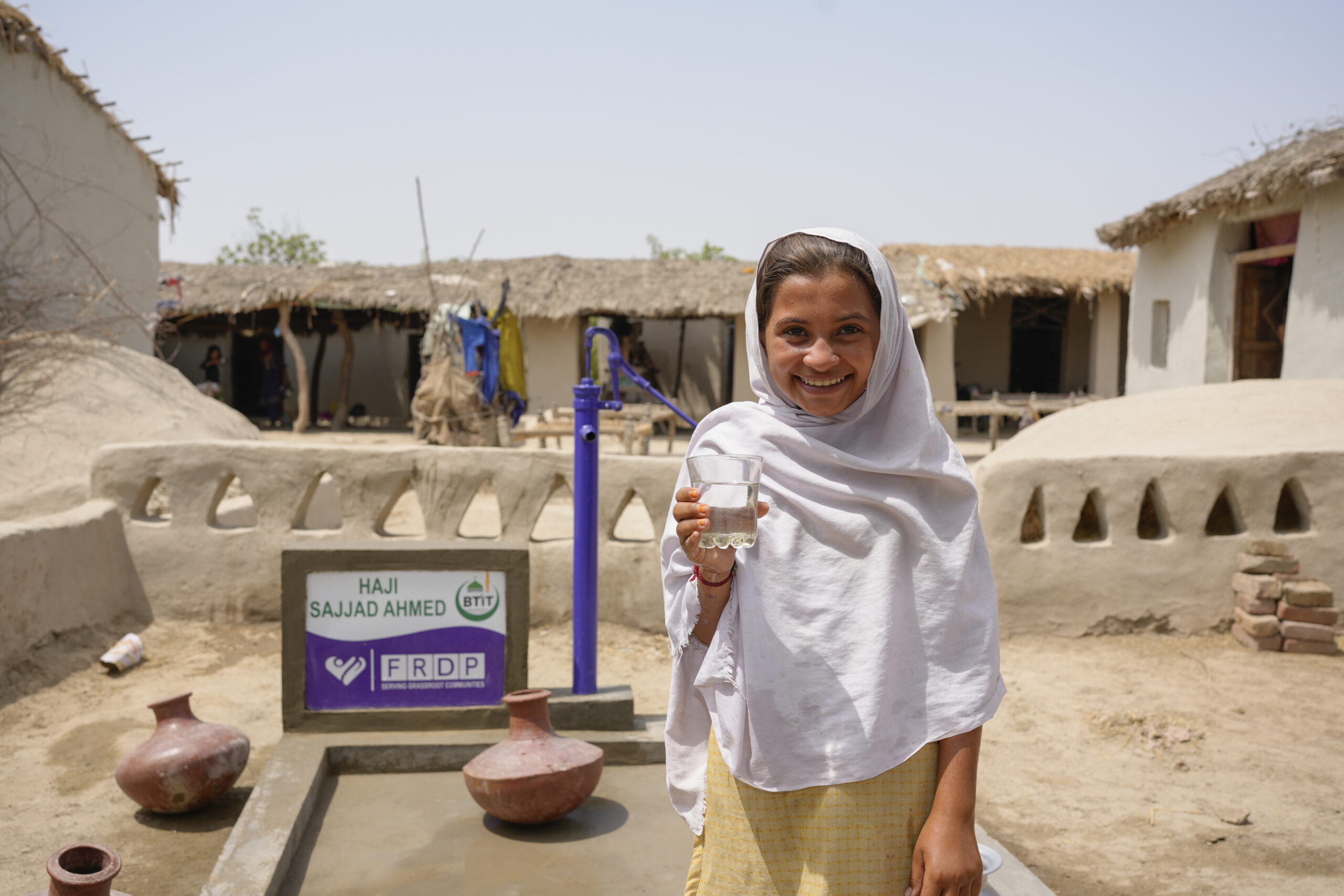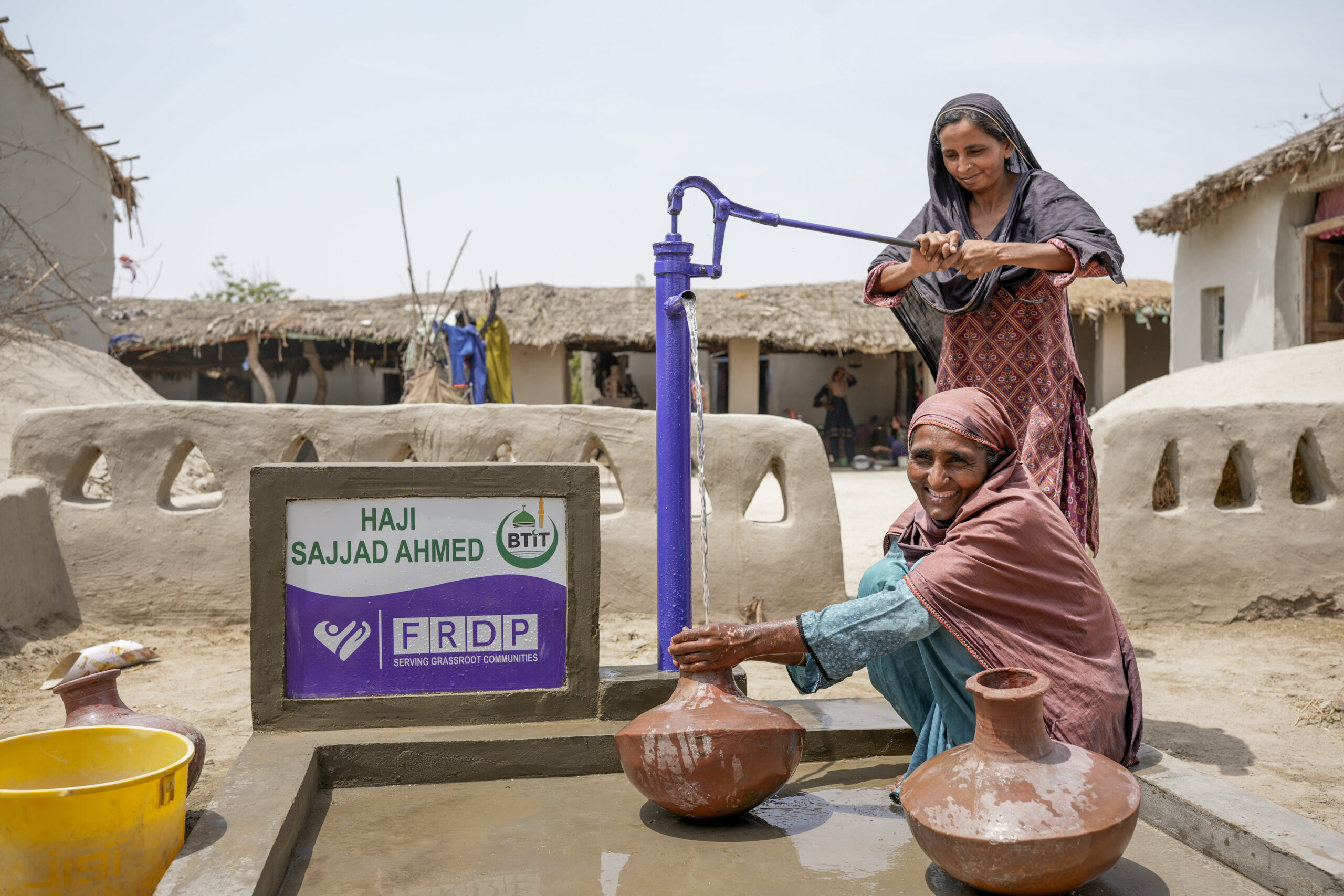Water, Sanitation & Hygiene (WASH) –
Clean Water & Health for Communities
At FRDP Pakistan, we are committed to transforming lives through Water, Sanitation and Hygiene (WASH) initiatives in underserved rural communities across Pakistan. Since 2007, we have delivered clean drinking water, improved sanitation, and hygiene education — helping families live healthier, safer, and more dignified lives.
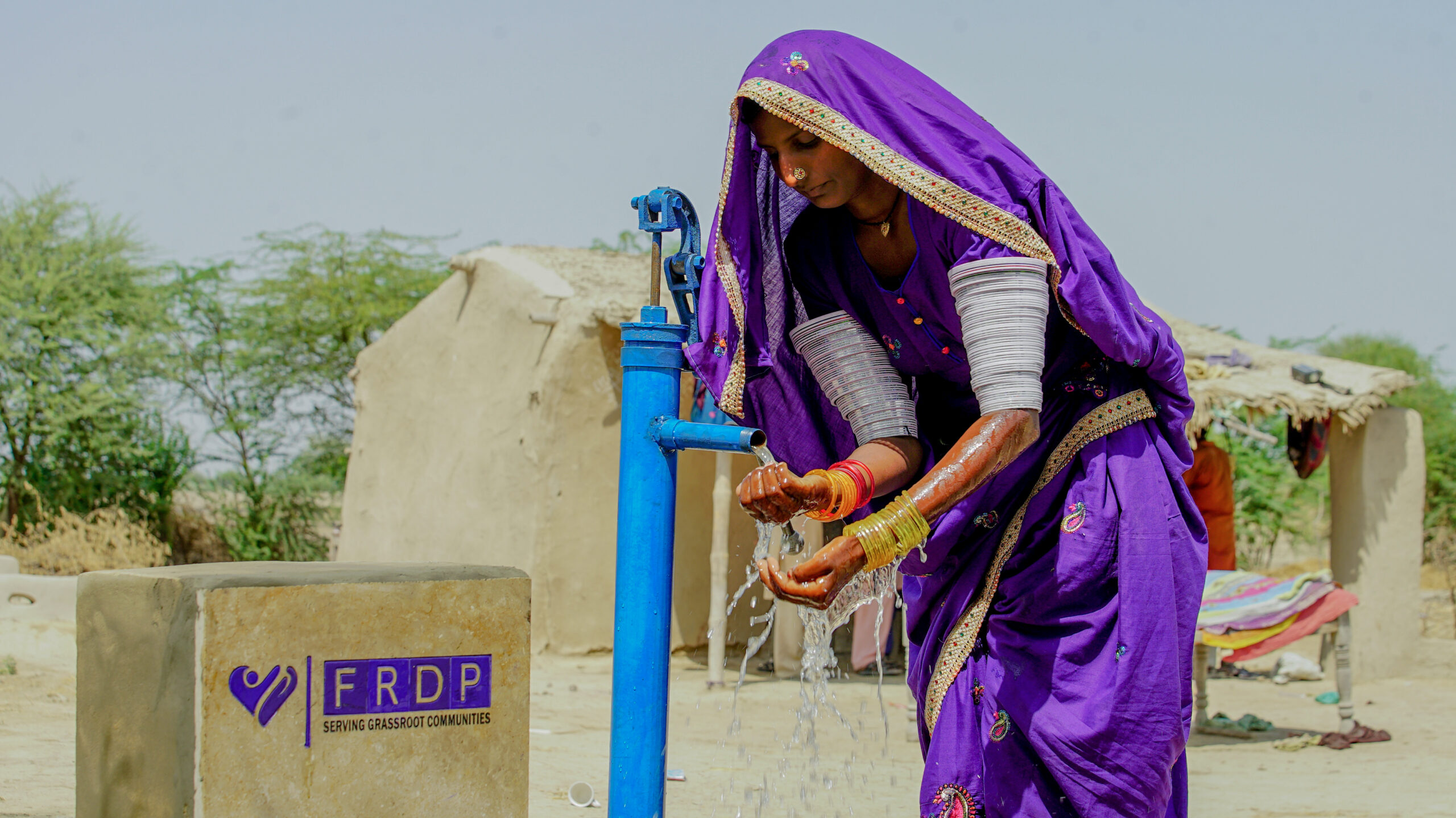
Why WASH Matters
Access to safe and affordable water and sanitation is fundamental to human health, education, and economic growth. Without safe water and hygiene facilities, communities face waterborne diseases, school absenteeism, and a higher risk of illness — especially among children and women.
Our WASH Programs
Clean Drinking Water Projects
We install and maintain community water systems, tube wells, and water purification points to ensure reliable access to safe water.
Sanitation & Latrine Construction
We build and upgrade sanitation facilities to reduce exposure to waste and prevent disease.
Hygiene Education & Behavior Change
We promote good hygiene practices — including handwashing campaigns and community awareness sessions — to protect public health.
Sustainable Community Engagement
Our WASH programs are developed with local participation to ensure long-term operation, maintenance, and ownership.
Impact Highlights
Since inception, FRDP’s WASH initiatives have:
✔ Delivered clean water to numerous rural villages.
✔ Reduced waterborne disease risk and improved overall community health outcomes.
✔ Educated communities on hygiene, sanitation and responsible water use.
Get Involved / Support Our WASH Work
You can support FRDP Pakistan’s clean water and sanitation efforts through donations — including zakat and sadaqah online. Your contribution helps bring lasting health and opportunity to hundreds of underserved communities.
- WASH programs in Pakistan
- clean water charity Pakistan
- water sanitation hygiene NGO Pakistan
- safe drinking water projects Pakistan
- rural water supply charity Pakistan
- sanitation and hygiene education Pakistan
- water wells NGO Pakistan
Our Partners
Gallery


